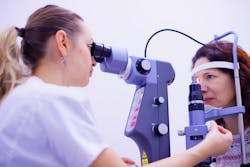Injection approved for treatment of rare autoimmune disease
The U.S. Food and Drug Administration (FDA) approved Uplizna (inebilizumab-cdon) injection for intravenous use for the treatment of neuromyelitis optica spectrum disorder (NMOSD) in adult patients with a particular antibody (patients who are anti-aquaporin-4 or AQP4 antibody positive). NMOSD is a rare autoimmune disease of the central nervous system that mainly affects the optic nerves and spinal cord, according to a news release from the FDA and Viela Bio, the developer of the treatment.
Uplizna is only the second approved treatment for the disorder.
NMOSD is a rare, severe, neuroinflammatory autoimmune disease that attacks the optic nerve, spinal cord and brain stem. In addition to potentially irreversible blindness and paralysis, patients may also experience loss of sensation, bladder and bowel dysfunction, nerve pain and respiratory failure. It is estimated that there are approximately 10,000 people in the U.S. suffering from NMOSD2. Multiple lines of evidence suggest that NMOSD is a B-cell-mediated disorder, according to Viela Bio.
Approximately 50 percent of patients with NMOSD have permanent visual impairment and paralysis caused by NMOSD attacks, the FDA said. According to the National Institutes of Health (NIH), women are more often affected by NMOSD than men and African Americans are at greater risk of the disease than are Caucasians. Estimates vary, but NMOSD is thought to impact approximately 4,000 to 8,000 patients in the United States.
NMOSD can be associated with antibodies that bind to a protein called aquaporin-4 (AQP4). Binding of the anti-AQP4 antibody appears to activate other components of the immune system, causing inflammation and damage to the central nervous system.
The effectiveness of Uplizna for the treatment of NMOSD was demonstrated in a clinical study of 230 adult patients that evaluated the efficacy and safety of intravenous Uplizna. In the trial, 213 of the 230 patients had antibodies against AQP4 (anti-AQP4 antibody-positive). During the 197-day study, the risk of an NMOSD relapse in the 161 anti-AQP4 antibody positive patients who were treated with Uplizna was reduced by 77 percent when compared to the placebo treatment group. There was no evidence of a benefit in patients who were anti-AQP4 antibody negative.

